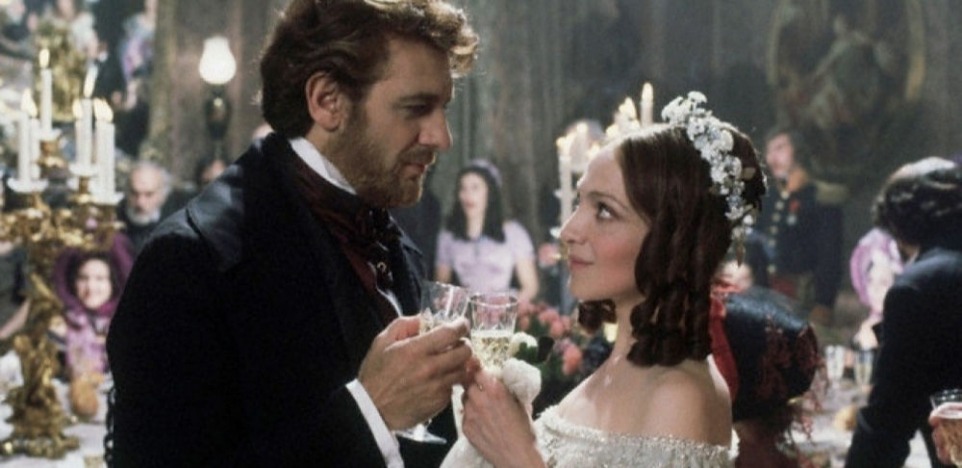In 1978, Jean Jaques Rosseau defined opera as "a dramatic and physical spectacle in which one endeavors to combine all the graces of the fine arts in the representation of a passionate action, with the inention of arousing interest and creating illusion by means of a pleaant sensation." Franco Zeffirelli must have had these requirements in mind when he adapted Giuseppe Verdi's La Traviata for the screen.
Teresa Stratas, a Canadian-born Metropolitan Opera soprano, is outstanding as Violetta, a courtesan dying of consumption. She dramatically conveys the magical attraction of Alfredo (Placido Domingo) that gives her a new lease on life. With even more emotion does she portray the immense sacrifice called for when she abandons her lover to save his sister's engagement.
Placido Domingo's tenor — one of the most celebrated voices in opera today — proves to be perfect for the passionate feelings needed in La Traviata. He moves with authority as the impulsive Alfredo. Cornell MacNeil, appearing in the baristone role of his father Germont, is just right as the bourgeois parent whose devotion to appearances blinds him to the meaning of love.
Zeffirelli's attention to detail dazzles in the luxuriant settings, costumes and over all ambiance of the film. A masquerade ball in the second act visually explodes in a cornucopia of bright color and dramatic dancing by members of The Bolshoi State Academic Theater. And, as in most of his other movies, Zeffirelli accents the moral implications and spiritual value of sacrificial love.
A final commendation is due James Levine whose direction of the Metropolitan opera Orchestra and Chorus contributes immeasurably to the quality of La Traviata.
